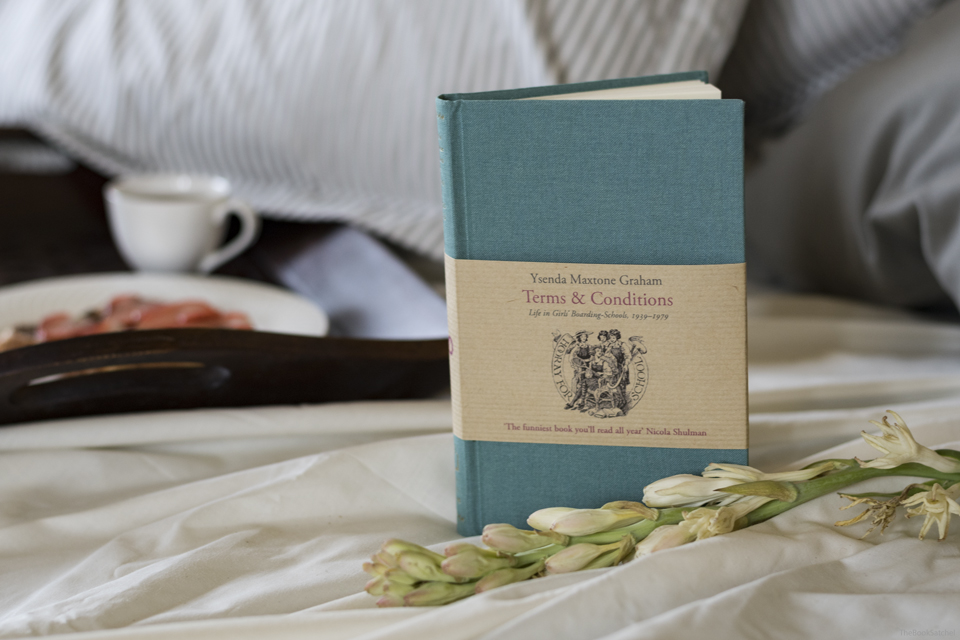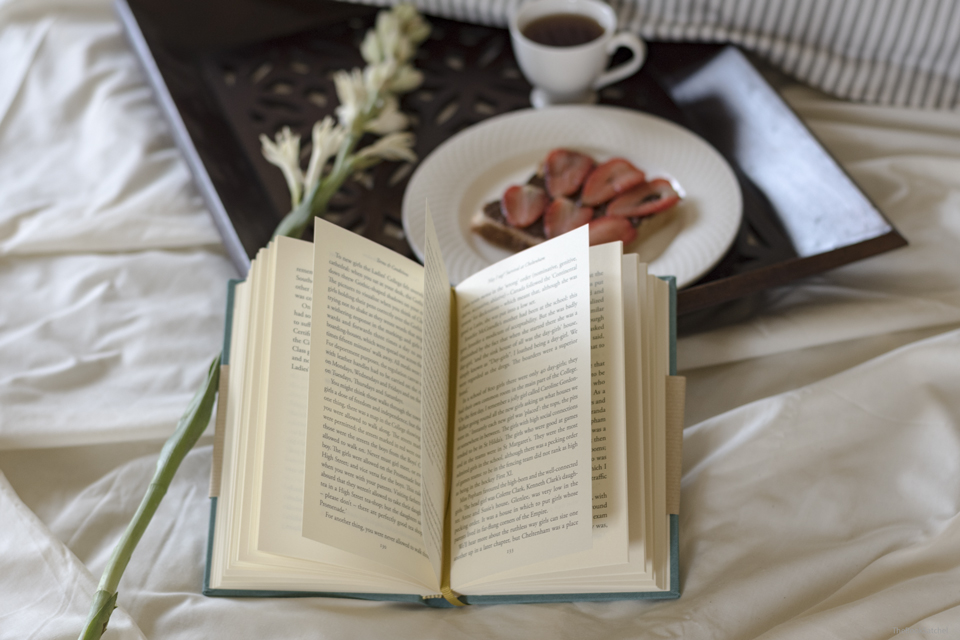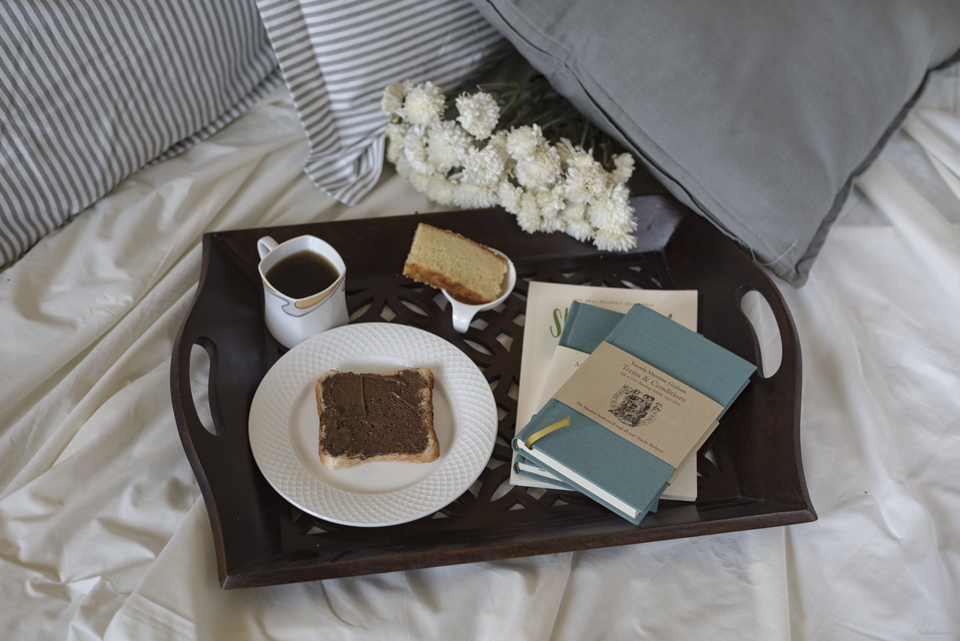Reader. Dreamer. Writer.
Terms and Conditions is a delightful collection of stories and anecdotes from boarding schools of England from 1939 to 1979.
Nothing like what you have read…
Like all girls who grew up devouring Blyton’s Malory Towers and St. Clare’s, I have a weakness for novels set in boarding schools. When I started reading Terms and Conditions, I was not making good progress with the book. I put it down and picked another book by the same author, Mr. Tibbit’s Catholic School (about a boys’ private school in Kensington) which to my delight was a wonderful read from Slightly Foxed. When I got back to this book after a month, I was surprised to see how much I enjoyed it. Terms and Conditions was so different from what I was expecting (I reckon that is what made me put it down when I picked it up for the first time). As one girl writes in the 1971 social survey of Girl’s Boarding schools, “I have read stories about girls’ boarding schools and they are nothing like what it is here.”
Choosing a school
I loved this chapter in the book. It makes one laugh to read about the concerns of parents in those days. The reasons to enroll their child in a school varied – suitable company, girls in the school not having spots, nice tea (yes!), to name a few. When Ysenda says “…today’s health obsessed parents fret about their children eating organic school food, sixty years ago parents were worried about their children actually dying in an epidemic”, she makes the giggles vanish from the readers’ face and pushes us into an abyss of deep thought. As I read I empathized with the girls whose knickers would freeze like cardboard and take over a week to dry and who were served powdered eggs (in the war time) that came out like savoury custard.

Education, teachers and nuns
Ysenda begins the ninth chapter in the book saying, “When I asked the Old Girls to shut their eyes and tell me the first image of boarding school life that came to mind, not a single one mentioned classroom or a lesson”. It was only after reading the sentence that I realized I didn’t wonder about the lessons at the boarding schools until then. And so true! When I think about my own boarding school days, it is the fun, friends and pranks (and the food!) that come to mind; never the lessons.
Once they are settled in their schools, the students slowly realise that there are different types of nuns and teachers. It was nice to read how the hierarchy slowly unfolded in young minds. Many students had stories to tell about their unmarried teachers too, which might have been quite scandalous had this account of boarding schools been published during that time. Every school tried to raise humble and non-spoilt girls; so no kind of luxury was allowed. The sarcasm shines when Ysenda writes, “To make food delicious would have gone against the grain of these establishments. It would have encouraged sensuality, self-indulgence and fussiness.”

Teaching femininity
There were words that the girls could use and those they couldn’t. “The word ‘toilet’ was forbidden? When a new girl shyly asked, ‘Please may I go to the toilet?’ Mother Bridget replied with disdain, ‘No girl ever goes to the toilet at this school’.”
In many of the schools, tidying up was part of the girl’s school curriculum but the boy’s school did not have a subject of the same kind (Of course, since the girl is always associated with keeping the house, cooking and cleaning even now in the 2000’s, we really cannot blame the educational institutions of the 1900’s). At Downe House, in the 1950s, ‘Housecraft’ was a lesson and girls had to dust the furniture, mop the floors and clean windows. The boys were taught Latin, quadratic equations and more in their respective schools while the girls were expected to grow up, get married and grow into ladies. The girls had to give exams that asked about type and quantity of material to be bought for a petticoat with a brassiere top to be worn with an organdie blouse (Domestic Science at St.Elphin’s in 1952) or to explain carefully how to lay the table for lunch (for 12 year olds at Hanford in 1972). The chapter on girls who love sports lent an interesting perspective of those time periods, which I shall not elaborate here.
The girls were also taught table manners on how to eat like a lady and it was amusing to read the different rules that were considered essential. There is an etiquette to be maintained for salt too. Salt must be put in a heap at the side of the plate because “no lady sprinkles her salt”. “Please may I have some salt” was not an acceptable question. The right way would be “Would you like some salt”; to which the other person should reply, “No, thank you, but would you?”.
Parents
I think parents cared lesser for their children during the olden days. No, I didn’t mean they were less anxious than the protective and obsessive parents of today; the parents of those days seemed to feel relieved when a daughter was enrolled at a boarding school. Many parents did not visit frequently and most didn’t know what their daughters were learning at school. They were content with their girls making suitable connections and learning manners. Having a girl at a boarding school seemed more of a statement of status than for the betterment of the child’s personality (with exceptions, of course).

The Old School girls
I loved the way Ysenda ended the book. These girls have seen a lot while growing up, especially with the onset of war. The girls really shine in the latter years of their life, whether they chose to be home makers or career women. They knew how to live, endure and survive. And that is the most important lesson of all.
Real life boarding school stories you have never read before @FoxedQuarterly Share on X
Final Verdict
I really enjoyed the read. I loved Terms and Conditions more than the boy’s boarding school stories in Mr. Tibbit’s Catholic School but I whole heartedly recommend both of them.
Title : Terms and Conditions
Author : Ysenda Maxtone Graham
Publisher : Slightly Foxed
Publication: 2016
Language : English
Pages : 272
Rating : 4.5/5
Add to Goodreads
Disclaimer : Much thanks to Slightly Foxed for a copy of the book. All opinions are my own.











Sounds wonderful! As someone who grew up also loving the Blyton school stories, I really should read this! 🙂
This is on my wishlist but, as usual, I have to get the TBR mountain down a bit first … I loved the sense you’ve given of the book, though.
This sounds like a fun but also thought-provoking read. I’ve always kind of romanticised the idea of boarding schools myself, so it’d be intriguing to read these stories and anecdotes.
That salt thing – how convoluted is that? I’m glad I didn’t go to boarding school, even though I loved the Blyton stories!
A Blyton fan!? Wow. Didn’t know that still existed. 🙂
I was a fab five fan.
Take care
I grew up on Enid Blyton. I think many Indians love her. I loved the Famous five too. I wasn’t a fan of Secret seven series.
I always love those coincidences. How people so distant in time, place and culture can find common grounds so easily. I wasn’t a big fan of the seven either, but the Five served as scripts for our childhood games. We’d go into the woods in Normandy and play that adventure or the other… 🙂 and look for hidden treasures, and fight the villains… 🙂
That and your wonderful blog do verify Hannah Arendt’s words: “Only the universal matters”.
Have a lovely sunday Resh.
A different kind of non-fiction! Sounds lovely.
I really enjoyed the read.
I must find this!! In one of my own books (not published) the father in 1932 or so frets that his daughters will become too mannish from playing hockey and will ruin their minds studying making them un-marriageable! I know I will enjoy this one!
Then you should definitely get this book. It is a beautiful mix of different incidents in that era. And good luck with your own book too
Oh wow, this sounds like such a wonderful read. I love books that are set in boarding schools too.
This was really lovely. I enjoyed the read.
So glad you enjoyed the read! I’m not sure this is a book I’d enjoy mostly because I’m not sure I can connect. And I’m sure the attempts at teaching femininity would leave me annoyed!
But forced attributes to femininity was a reality in those times. So yes, this might not be a book for you.